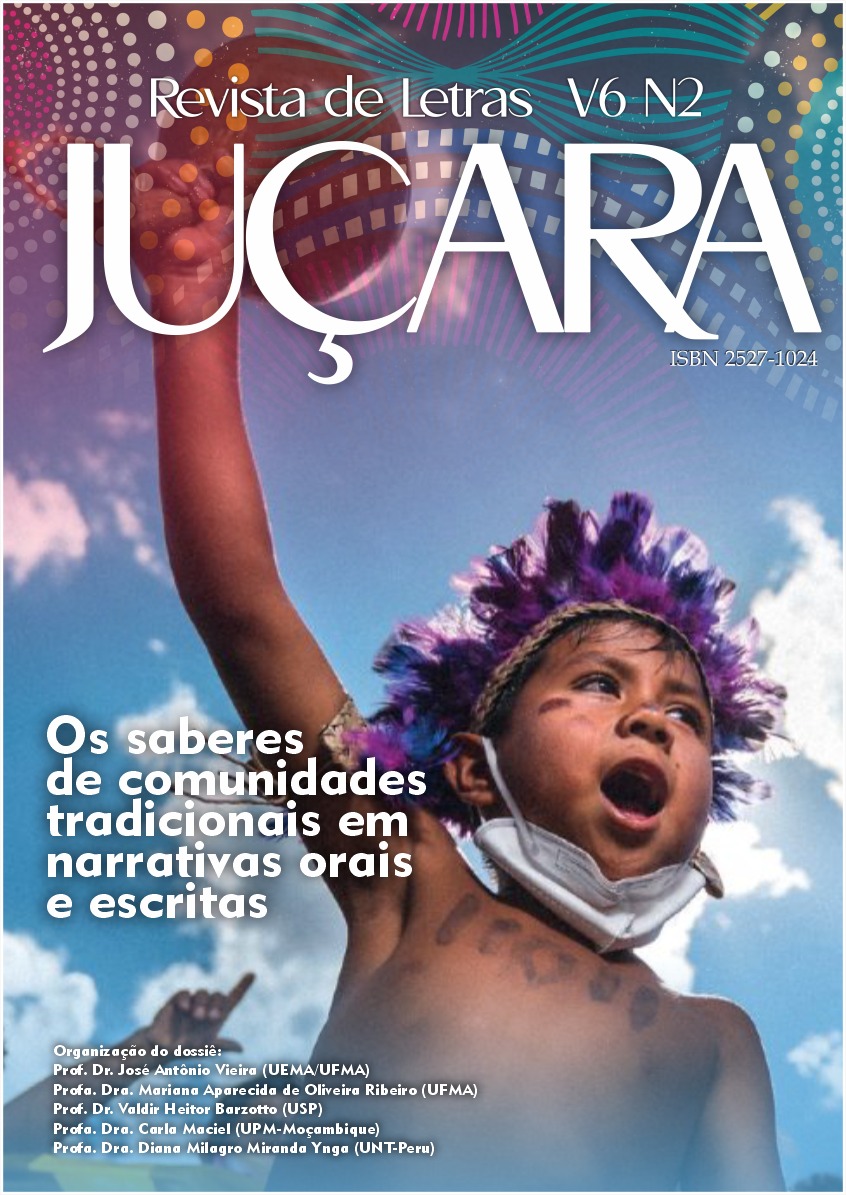BETWEEN THE NARRATED, THE REMEMBERED AND THE LIVED: MEMORY NARRATIVES OF WOMEN FROM THE QUILOMBOLA COMMUNITY SANTO ANTÔNIO DOS PRETOS, CODÓ-MA
DOI:
https://doi.org/10.18817/rlj.v6i2.3006Abstract
Memory is the mechanism responsible for keeping the past of the human being, around the particularities and collectivities capable of reassembling the identity, the history and culture of both the individuals within and the society in which they are included. When remembered, the experiences of the human being are evoked, so that we can reflect on the subjects based on these reports. Therefore, this article analyzes the oral reports of women from the Santo Antônio dos Pretos Community, from the memorialistic attributes that make up the narrated. The article is the result of the project "The webs of Ariadne: narratives of memories of women of the quilombola community Santo Antônio dos Pretos, Codó - MA" funded by FAPEMA - Gender Equality Notice No. 07/2016, whose methodology is first based on bibliographical discussions, supported by the studies of Maurice Halbwachs (1990), Ecléa Bosi (2003), Beatriz Sousa (2015), João Batista Machado (1999), among others. In the background, this work is carried out through field research, in visits to Santo Antônio dos Pretos. Thus, there were substantial observations of the wheels of dialogue with the women of the community, which evoke their daily memories, methodology capable of unsealing subjectivities. In view of this, it was possible to realize that memory is an indispensable foundation when we think of the history, tradition and culture of a people. Oral accounts of the memories of quilombola women have raised a reflection on the construction of their identity, as well as the various forms of female self-affirmation, which heavy work routines were not able to erase.
Downloads
Published
How to Cite
Issue
Section
License
Copyright (c) 2022 Caio da Silva Carvalho, Silvana Maria Pantoja dos Santos

This work is licensed under a Creative Commons Attribution 4.0 International License.
A submissão de originais para a Revista de Letras Juçara implica na transferência, pelos autores, dos direitos de publicação. Os direitos autorais para os artigos publicados nesta revista são do autor, com direitos da revista sobre a primeira publicação. Os autores somente poderão utilizar os mesmos resultados em outras publicações indicando claramente a Revista de Letras Juçara como o meio da publicação original.


